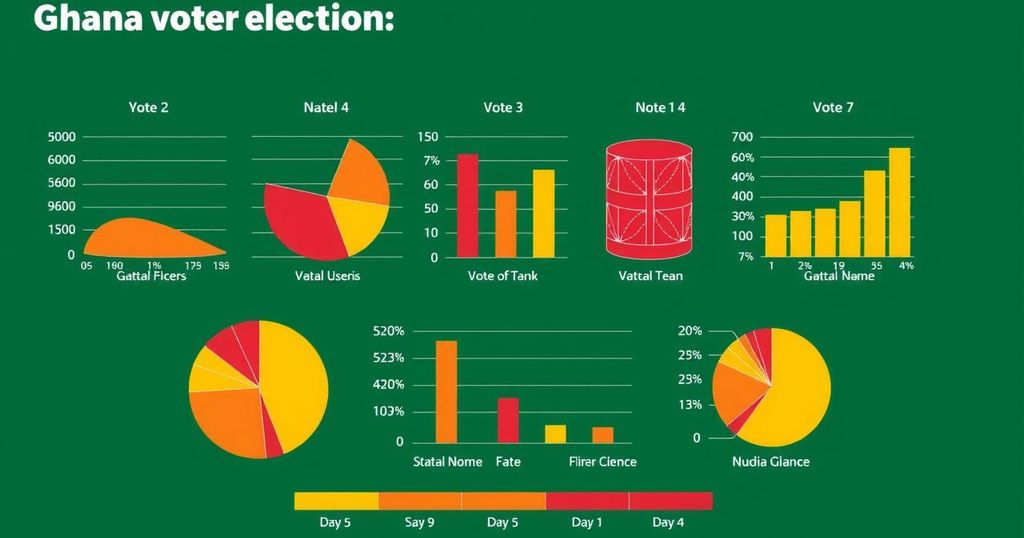Ghana is on the brink of its ninth general election since 1992 amidst economic turmoil, marked by high inflation and rising unemployment. The National Democratic Congress and the New Patriotic Party are the main contenders, as economic conditions heavily influence voters. With young people particularly affected by these issues, the upcoming elections hold implications for the country’s political stability and governance.
Ghana prepares for its ninth general election since the restoration of multiparty politics in 1992, having experienced three peaceful transitions of power. The primary contenders remain the National Democratic Congress (NDC) and the New Patriotic Party (NPP), both of which have alternated leadership for 16 years each. Currently, the NPP seeks an unprecedented third consecutive term amidst pressing voter concerns.
The economic climate has significantly impacted Ghanaians, particularly due to global inflation which began in early 2022 and reached a staggering annual peak of 54.1% in December 2022. Although inflation rates have somewhat moderated, many staple prices continue to rise sharply. The cost of eggs and tomatoes, for instance, has more than doubled in the past year, forcing many into poverty and diminishing living standards, according to the World Bank.
In 2022, Ghana defaulted on its debt repayments, prompting difficult negotiations with international lenders, while the government sought assistance from the International Monetary Fund (IMF). President Nana Akufo-Addo acknowledged the severity of the situation, attributing the crisis to external factors, while his opponents and economists pointed to governmental mismanagement. The country’s debt has escalated over 20 years, with over 70% of its income now allocated to debt servicing.
The unemployment rate in Ghana has worsened, with one in seven Ghanaians unemployed, compared to one in twenty two decades ago. Young people, especially those aged 15 to 24, are disproportionately affected, facing a jobless rate nearly double the overall figure. This demographic’s perspectives will likely be pivotal in determining the election’s outcome.
Gold production is another vital topic in the election discourse, highlighting environmental degradation due to small-scale and illegal mining. The allure of gold mining, highlighted by a rising global market, remains central to Ghana’s economy, contributing $5.2 billion in exports in 2023. Ghana, along with its wealth in oil, gas, and other resources, has seen significant economic growth and improvements in living standards over the past three decades, despite recent stagnation.
Post-2017, economic metrics have shown limited progress, compelling voters to focus primarily on immediate economic conditions rather than long-term improvements. Ghana has established itself as a stable democracy through its decades of closely contested elections, making it a regional model against political instability. The results of the upcoming election on December 7 are expected to be disclosed within three days.
The upcoming general election in Ghana marks a critical moment in the nation’s political landscape, reflecting both the achievements and challenges experienced since the advent of multiparty democracy in 1992. With economic pressures, especially relating to inflation and debt, and demographic dynamics influencing voter sentiment, the election could reshape the future of governance in Ghana. An understanding of the socio-economic climate is essential to grasp the motivations and concerns of the electorate as they approach the polls.
In conclusion, Ghana’s voters face significant economic challenges as they head into the general election, with inflation and unemployment weighing heavily on their decision-making processes. The outcome could be influenced considerably by the youth demographic and pressing issues such as debt management and the environment. The resilience of Ghana’s democratic framework, coupled with the historical context of previous elections, will play a crucial role in shaping the country’s political trajectory following the polls.
Original Source: www.bbc.com






